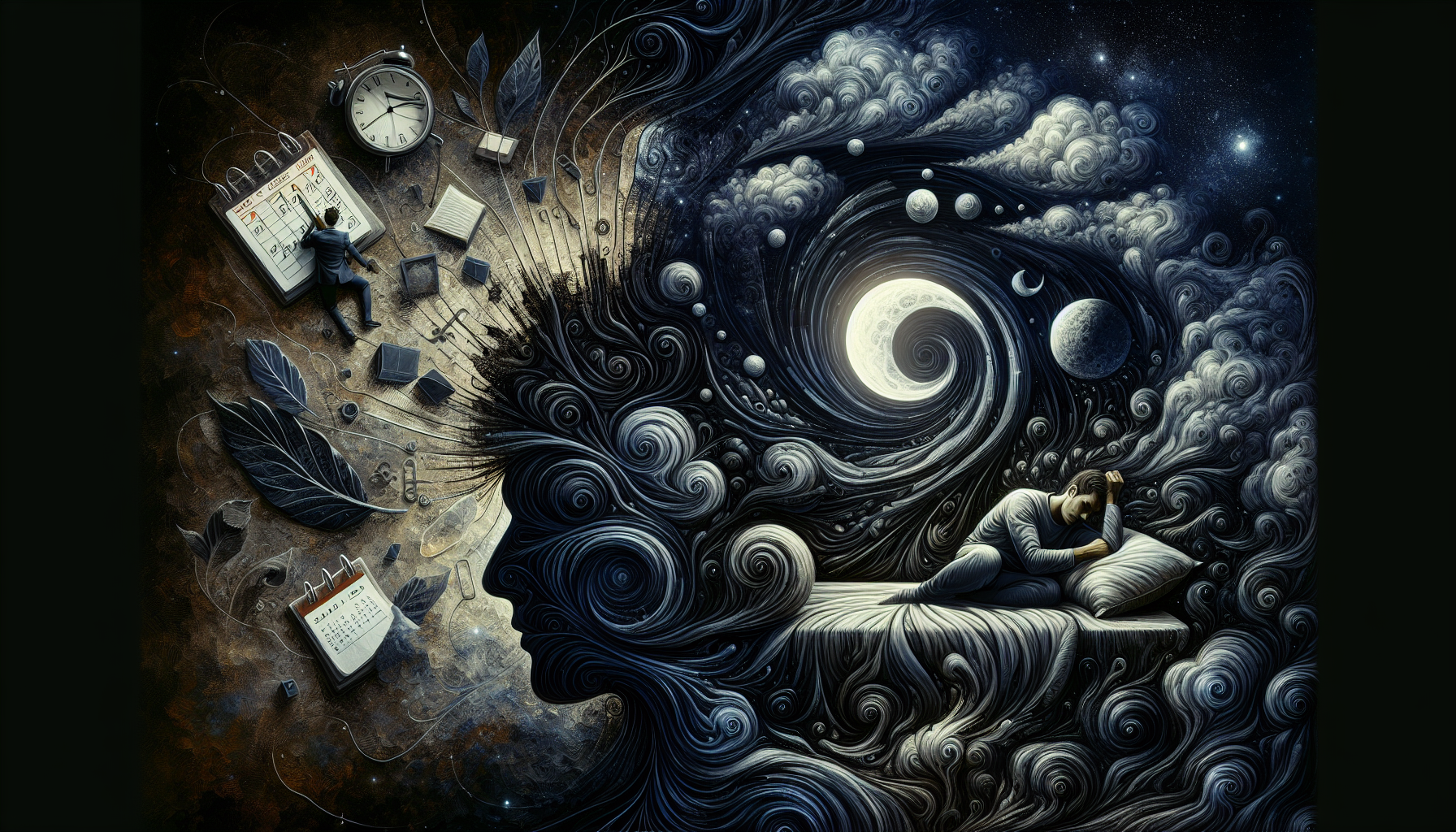The Connection Between Anxiety and Rest: Unraveling the Nightly Battle
The Restless Mind: How Anxiety Intrudes on Sleep
It’s the middle of the night, and instead of being wrapped in the comforting embrace of sleep, you find your mind racing with worries about tomorrow’s meeting, yesterday’s argument, or the endless to-do list that never seems to shrink. This scenario is all too familiar for those who grapple with anxiety, a condition that doesn’t just affect us during the day but can significantly disrupt our rest at night. I’ve experienced this firsthand; nights where sleep seemed like a distant dream, overshadowed by the relentless chatter of anxious thoughts.
Recent studies, such as one published in Sleep Medicine Reviews, have shown that anxiety can lead to significant sleep disturbances. The research suggests that individuals with higher levels of anxiety are more likely to experience insomnia, characterized by difficulty falling asleep, staying asleep, or both. This isn’t just about feeling tired the next day; chronic sleep deprivation can have profound effects on our mental health, creating a vicious cycle where anxiety leads to poor sleep, which in turn exacerbates anxiety.
Breaking the Cycle: Strategies to Enhance Rest and Reduce Anxiety
So, what can be done to break this cycle? From personal experience and backed by current research, here are some strategies that have helped me and could help you too.
First, establishing a consistent bedtime routine can signal to your body that it’s time to wind down. This might include activities like reading a book, practicing meditation, or taking a warm bath. The key is to avoid screens, as the blue light emitted can interfere with melatonin production, further complicating sleep. A study from the National Sleep Foundation highlights the benefits of a pre-sleep routine in improving sleep quality and reducing anxiety.
Mindfulness and relaxation techniques have also been a game-changer for me. Techniques such as deep breathing exercises or progressive muscle relaxation can help calm the mind and prepare the body for sleep. I’ve found that dedicating just 10 minutes before bed to these practices can make a significant difference in how quickly I fall asleep and the quality of my rest.
The Role of Environment and Lifestyle in Managing Anxiety and Sleep
Our environment plays a crucial role in how well we sleep. A bedroom that’s too bright, noisy, or cluttered can contribute to restlessness and anxiety. I’ve made it a point to create a sleep sanctuary—dim lighting, minimal noise, and a clutter-free space. This simple change has had a profound impact on my ability to relax and fall asleep more easily.
Additionally, lifestyle factors cannot be overlooked. Regular physical activity has been shown to improve sleep quality and reduce anxiety levels. However, timing is important; exercising too close to bedtime can actually increase alertness, making it harder to fall asleep. I’ve found that morning or afternoon workouts work best for me, allowing my body to wind down naturally in the evening.
Diet also plays a role. Consuming caffeine or heavy meals close to bedtime can lead to discomfort and alertness, both of which can exacerbate anxiety and disrupt sleep. I’ve experimented with different dietary adjustments and found that a light, early dinner helps me sleep more soundly.
When to Seek Professional Help
While these strategies can be effective for many, there are times when professional intervention is necessary. If anxiety and sleep disturbances persist despite trying various techniques, it may be time to consult a healthcare provider. They can offer more targeted treatments, such as cognitive-behavioral therapy for insomnia (CBT-I), which has been shown to be highly effective in managing both anxiety and sleep issues.
From my journey with anxiety and sleep, I’ve learned that it’s not just about finding a quick fix but about understanding the intricate dance between our minds and bodies. By addressing both anxiety and sleep with a holistic approach, we can pave the way for more restful nights and calmer days.
